Wednesday☕️

Economics & Markets:
- Yesterday’s U.S. stock market:
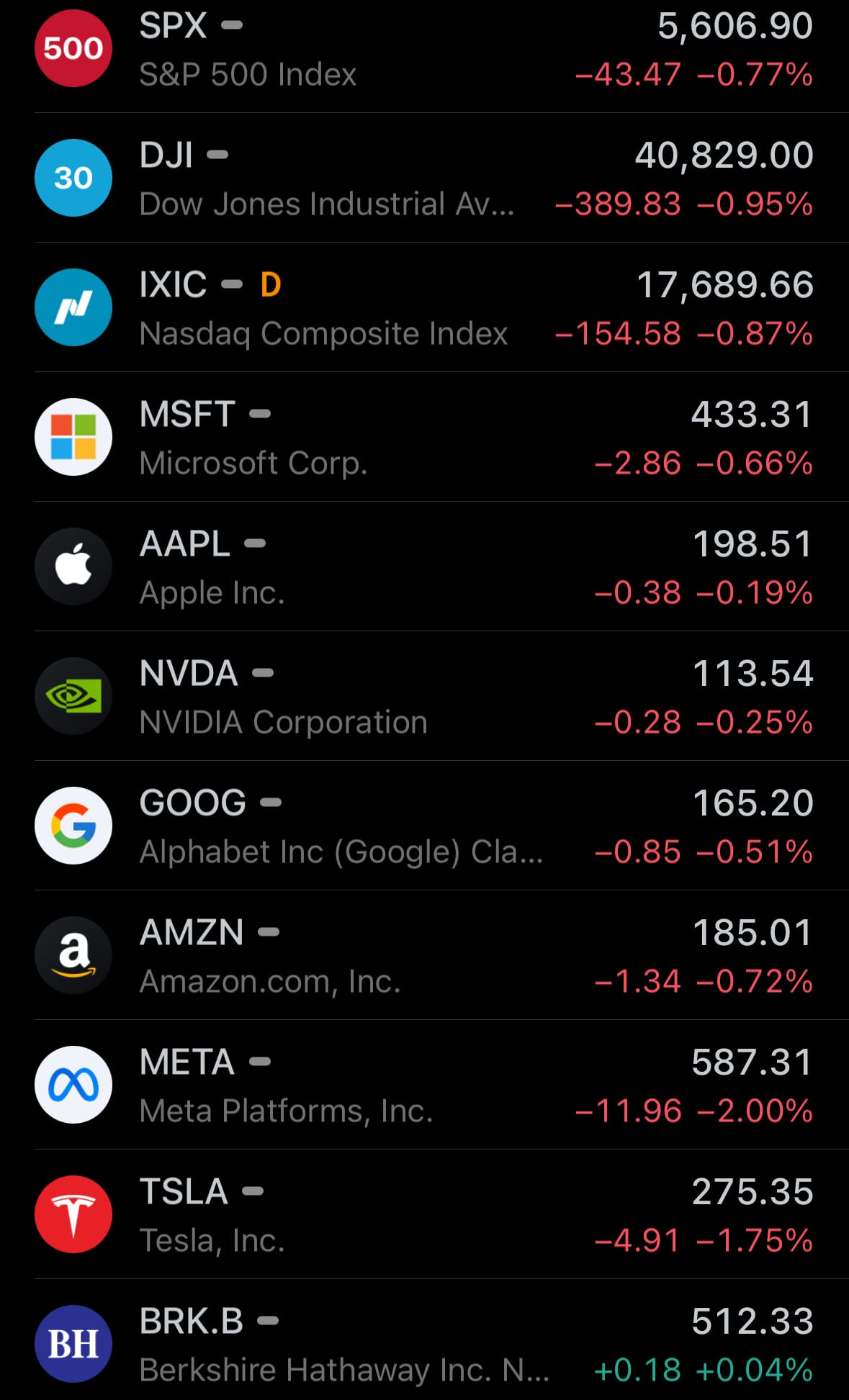
- Yesterday’s commodity market:

- Yesterday’s crypto market:

Geopolitics & Military Activity:
- Yesterday, May 6, 2025, India launched missile strikes targeting nine locations in Pakistan-administered Kashmir (Muzaffarabad and Kotli) and Punjab province (Bahawalpur), in an operation named Sindoor. The strikes were in retaliation for an April 22 attack in Pahalgam, Indian-administered Kashmir, which killed 26 civilians. India’s Ministry of Defence stated the attacks focused on terrorist infrastructure tied to groups like Lashkar-e-Taiba and Jaish-e-Mohammed, using Rafale jets equipped with SCALP missiles and AASM Hammer bombs. The strikes, conducted without entering Pakistani airspace, caused significant disruptions, including a power blackout in Muzaffarabad.

- Pakistan reported eight civilian deaths, including a child, and 38 injuries, asserting that the strikes hit civilian areas, including mosques, rather than military targets. Pakistani authorities claimed their air force downed Indian aircraft, though India did not confirm these claims. In response, Pakistan conducted missile strikes on Indian-administered Kashmir, which India reported killed three civilians. The exchanges along the Line of Control intensified tensions between the two nuclear-armed nations, drawing international calls for de-escalation from countries like the United States and the United Arab Emirates.
Environment & Weather:
- Yesterday, May 6, 2025, a severe hailstorm hit southwestern Romania, primarily affecting Mehedinti County, including Burila Mare. The storm, caused by a cyclic supercell, produced hailstones up to 6 cm in diameter, damaging buildings, vehicles, and agricultural fields. Radar data showed intense storm activity, with reflectivity values over 70 dBz and a hook echo indicating potential for significant hail. Local reports and social media described heavy hail accumulation on roads, disrupting daily activities. The storm was part of a series of severe weather events in Romania during the spring, impacting already vulnerable farming areas.
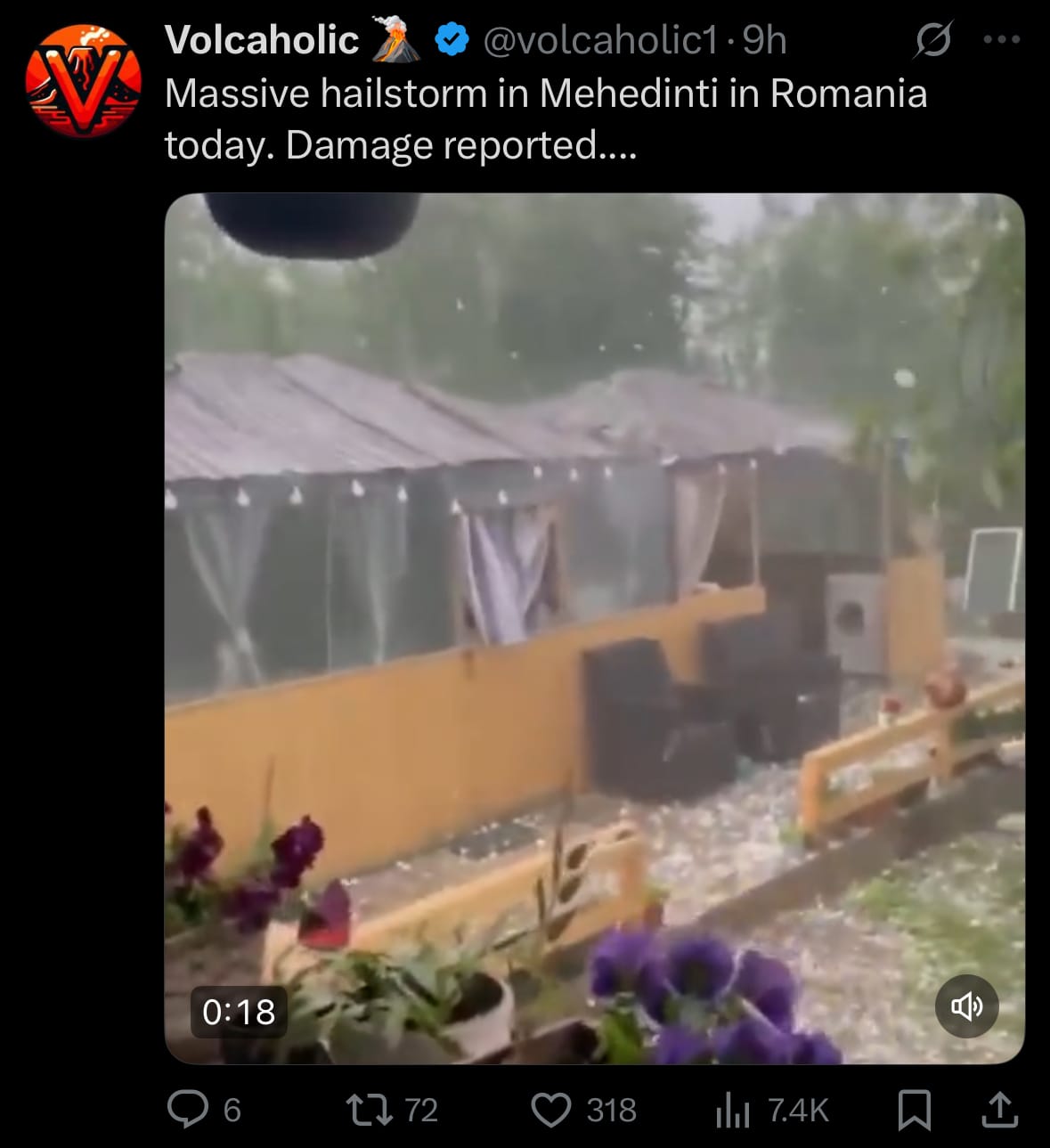
- Romania frequently experiences hailstorms due to its geographical position, which supports the formation of supercell thunderstorms in warm, unstable conditions. The European Severe Storms Laboratory (ESSL) has recorded several major events, such as a 2016 storm in Sânandrei with hail up to 15 cm and a 2023 supercell producing 14 cm hail across a 1200-km path. In 2019, a hailstorm in Zalau caused significant disruption. These storms, most common in spring and summer, often result in crop losses, property damage, and occasional injuries. In 2024, Europe saw 10,092 hail reports, highlighting Romania’s recurring exposure to such weather events.
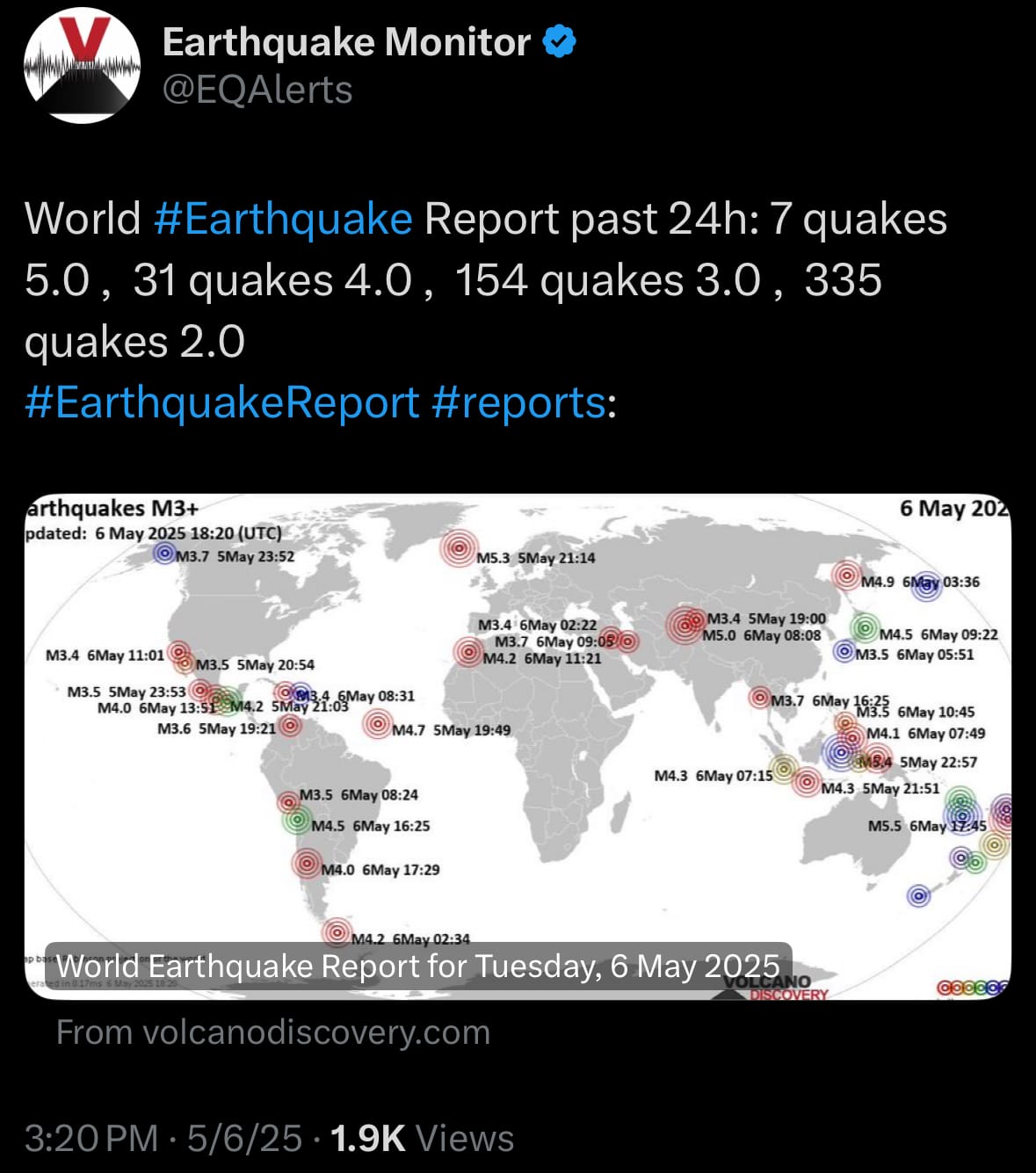
Space:
- Yesterday, May 6, 2025, SpaceX launched a Falcon 9 rocket from Cape Canaveral Space Force Station in Florida, deploying 28 Starlink satellites into low Earth orbit. The mission, launched from Space Launch Complex 40, with the rocket traveling southeast. About eight minutes after launch, the first-stage booster, identified as B1078, landed on a droneship in the Atlantic Ocean, completing its 20th flight. The upper stage released the satellites approximately one hour after liftoff, adding to SpaceX’s Starlink constellation, which now includes over 7,600 satellites.
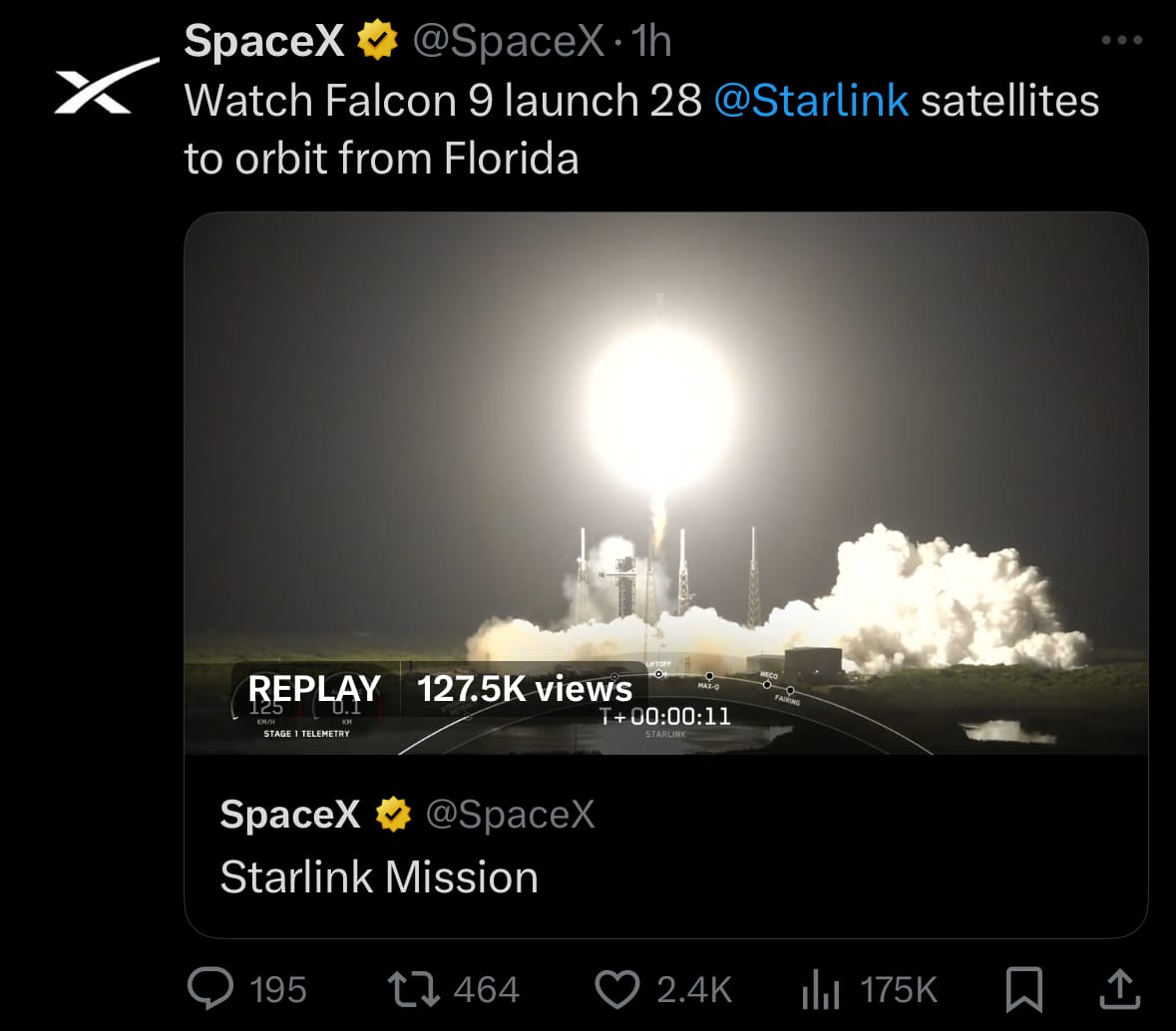
- This was SpaceX’s 51st Falcon 9 launch of 2025 and the 33rd focused on expanding the Starlink network, designed to provide global internet access. The satellites, V2 Mini models, feature upgrades like direct-to-cell connectivity. Weather conditions were highly favorable, with a 95% chance of clear skies. The mission aligns with SpaceX’s frequent launches, following 134 Falcon flights in 2024. The satellites will perform orbit-raising maneuvers in the coming days to integrate into the operational constellation.
Statistic:
- Largest public pharmaceutical companies by market capitalization:
- 🇺🇸 Eli Lilly: $737.45B
- 🇺🇸 Johnson & Johnson: $372.94B
- 🇺🇸 AbbVie: $346.84B
- 🇩🇰 Novo Nordisk: $309.18B
- 🇨🇭 Roche: $264.34B
- 🇨🇭 Novartis: $222.66B
- 🇬🇧 AstraZeneca: $221.23B
- 🇺🇸 Merck: $208.01B
- 🇺🇸 Amgen: $150.58B
- 🇺🇸 Pfizer: $135.37B
- 🇫🇷 Sanofi: $135.06B
- 🇺🇸 Vertex Pharmaceuticals: $128.58B
- 🇺🇸 Gilead Sciences: $127.99B
- 🇺🇸 Bristol-Myers Squibb: $101.87B
- 🇯🇵 Chugai Pharmaceutical: $97.24B
- 🇺🇸 CVS Health: $84.88B
- 🇬🇧 GlaxoSmithKline (GSK): $78.16B
- 🇦🇺 CSL: $76.55B
- 🇺🇸 Zoetis: $70.50B
- 🇺🇸 Regeneron Pharmaceuticals: $65.16B
- 🇩🇪 Merck KGaA: $60.82B
- 🇮🇳 Sun Pharmaceutical: $52.30B
- 🇨🇭 Lonza: $51.86B
- 🇯🇵 Takeda Pharmaceutical: $48.06B
- 🇯🇵 Daiichi Sankyō: $46.80B
History:
- Missile systems have roots in ancient warfare, with early examples like Chinese fire arrows and Greek fire projectiles around the 3rd century BC, using basic propulsion and incendiary payloads. The modern era began with Germany’s V-1 and V-2 rockets in World War II, the V-2 being the first ballistic missile, achieving speeds over 5,000 km/h and ranges of hundreds of kilometers. Powered by liquid-fuel engines and primitive guidance, these laid the foundation for later innovations. The Cold War drove rapid progress, with the U.S. and Soviet Union developing ICBMs like the Atlas and R-7, capable of delivering nuclear warheads across continents, while cruise missiles like the Tomahawk introduced precision guidance.
- Late 20th and early 21st-century advancements emphasized accuracy, stealth, and defense. Systems like the U.S. Patriot and Russian S-400 brought advanced radar and interception for missile defense. Hypersonic missiles, such as Russia’s Kinzhal and China’s DF-ZF, now exceed Mach 5 with evasive trajectories. Modern missiles leverage satellite navigation, AI, and real-time targeting, but their spread to non-state actors and smaller nations raises security risks. Missile technology continues to evolve, with ongoing development of offensive systems and defensive countermeasures like integrated missile shields.
Image of the day:

Thanks for reading!
Earth is complicated, we make it simple.
Click image to view the Earth Intelligence System:
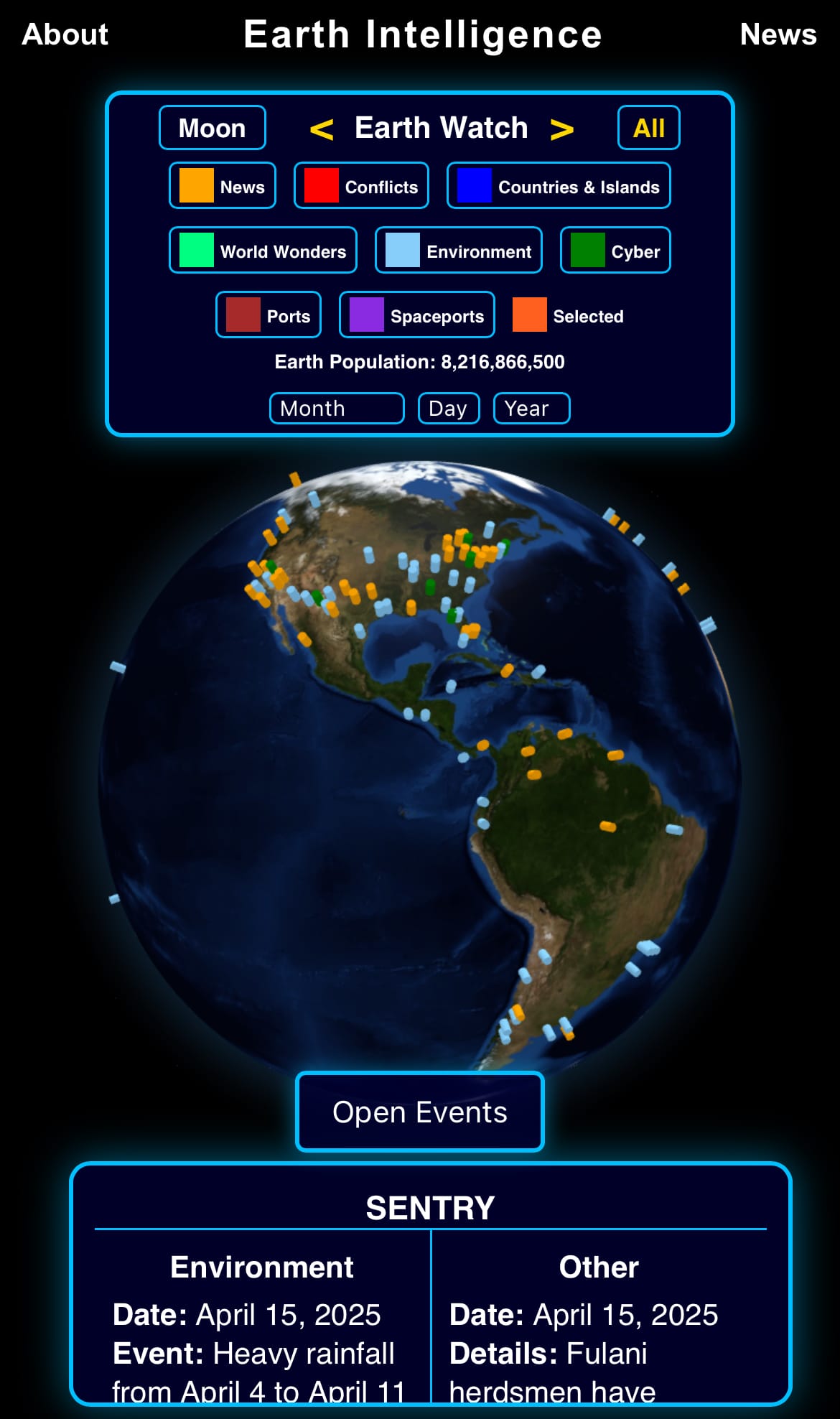


Support/Suggestions Email:
earthintelligence@earthintel.news




